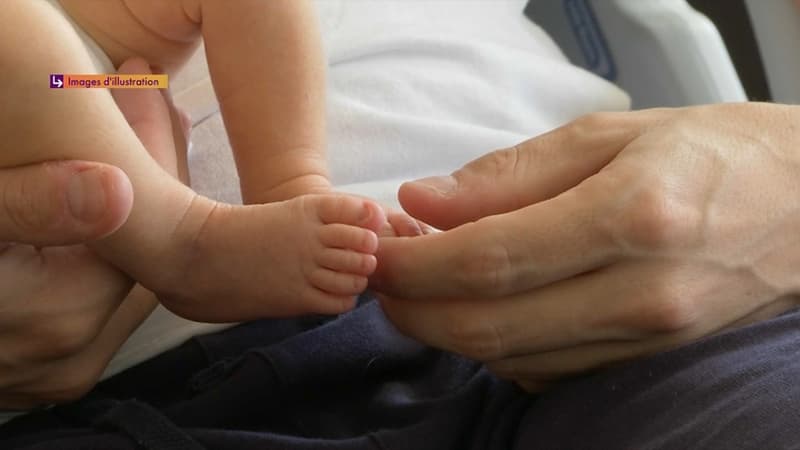In France, thousands of parents know the suffering of a child who dies too soon. Sometimes this pain only appears a few hours, days, or weeks after birth. A recent INSEE study revealed that in 2021, 3.7 out of 1,000 French children died before their first birthday. A phenomenon that is still difficult to pin down.
Infant mortality is a scourge that does not affect all areas of France uniformly. This Thursday, the parisian has given the alert about the situation in Île-de-France. In this region “the increase is faster and greater than that observed at the national level,” explains epidemiologist Babette Matulonga.
The Île-de-France case is not an isolated case. If in 100 years France has gone from 101 deaths per 1,000 births to 3.7, the trend is no longer correct. There is no talk of a decrease since 2005. Worse still, between 2014 and 2017, this rate “increased slightly”, notes INSEE.
Some departments are doing well. Others, mainly the overseas territories, are in a particularly unfavorable situation, with sometimes three times as many deaths per thousand deaths. In order, Mayotte (8.9), Guyana (8.2), Guadeloupe (8.1), Martinique (7.2) and finally Reunion (6.7), which remain well above the national average.
“I would never send my daughters to give birth in a small maternity ward!”
How can France, a first-rate world power with an advanced healthcare system, experience such a phenomenon? On its page dedicated to infant mortality in the world, Unicef advances several general causes. The first point, and certainly the most frequent, is precariousness.
A birth in an environment considered “very poor” increases the probability of premature death by 40%. The mother’s educational level also played a role, less likely when she completed secondary school.
“The other countries in Europe also have these general problems, they cannot explain on their own the excess mortality specific to France,” says Jean-Christophe Rozé, a pediatrician and head of the department of neonatal medicine at Nantes University Hospital.
For the specialist, the failures of the French health services fish twice and cause “1,000 tragedies a year.” In the first place, in the case of extremely preterm births, those that occur with less than 28 weeks of amenorrhea.
For years, French practitioners feared giving birth to these too-small babies for fear they would have a disability. “Poor medical judgment” among older doctors, she admits. Apart from this bias, in these cases of extreme prematurity, he highlights the lack of availability -and the uneven distribution- of resuscitation beds.
Another problem is death during (or shortly after) “low risk” births. When the mother is in good health and the delivery appears to have gone well but an unforeseen accident occurs “such as a jammed umbilical cord.” Rare cases to which it is difficult to react due to lack of practice.
A particularly real problem during “low security” deliveries, in “small maternity hospitals” with reduced numbers or during home births. “I would never send my daughters to give birth in a small maternity hospital!” She assures.
The consequences of these situations, immediate death or consequences that will lead to death in the first days of life.
“A priority” of the government
France must tackle this problem head on because the situation is deteriorating. In 1980, France had the fifth lowest infant mortality in the OECD. In 2020, the country fell to 18th place, behind Greece, the Czech Republic or Lithuania. Even within the EU, France is also a bad student.
A reduction of which the Government is “aware”, as Charlotte Caubel, Secretary of State to the Prime Minister for Children, explained to BFMTV.com.
“The Government is aware of the increase in infant mortality in certain territories. To respond to this, many measures have already been taken,” says the member of the executive.
Among the systems implemented, that of the “first 1,000 days” deployed since 2020, a mission in maternity hospitals launched on May 3 “but also an improvement in the care and monitoring of premature children.”
To go further, the Secretary of State assures that this problem is “one of the priorities of the work of the children’s health foundations that are being finalized.”
For Jean-Christophe Rozé, who also chairs the French Neonatology Society, France does not need to procrastinate. Effective solutions have already been demonstrated in Northern European countries, especially in Sweden, where the reduced number of maternity wards, but with more staff, has saved many young lives.
Source: BFM TV


